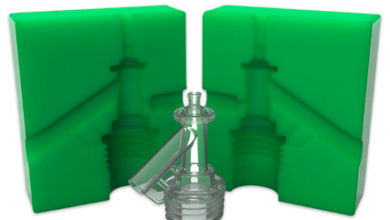Getting Started with Microsoft Dynamics CRM: A Comprehensive Beginner’s Guide

Microsoft Dynamics CRM (Customer Relationship Management) is a comprehensive solution designed to manage a company’s interactions with current and potential customers. It is part of the broader Dynamics 365 suite, which integrates CRM and ERP (Enterprise Resource Planning) capabilities. Dynamics CRM focuses on three main areas: sales, marketing, and customer service. By leveraging this platform, businesses can streamline their processes, improve customer relationships, and drive sales growth.
Why is a CRM System Important?
Microsoft Dynamic 365 developers CRM system is crucial for modern businesses for several reasons:
Centralized Data Management:
It consolidates all customer information in one place, making it easily accessible and manageable.
Enhanced Customer Relationships:
By keeping track of customer interactions and preferences, businesses can offer personalized experiences and foster stronger relationships.
Improved Sales Processes:
CRM systems help manage sales pipelines, track leads, and automate sales tasks, resulting in increased efficiency and better sales performance.
Effective Marketing:
They provide tools for segmenting audiences, managing campaigns, and analyzing marketing efforts to improve ROI.
Superior Customer Service:
With features like case management and a knowledge base, CRM systems ensure timely and effective customer support.
Dynamics CRM stands out due to its integration capabilities with other Microsoft products, offering a seamless experience across different business functions.
Getting Prepared
Define Your CRM Goals
Before implementing Dynamics CRM, it’s essential to define clear goals. Ask yourself:
- What specific problems are we trying to solve with CRM?
- How do we measure success (e.g., increased sales, improved customer satisfaction)?
- Which departments will use the CRM, and what are their specific needs?
Clearly defined goals help in selecting the right features and customization options, ensuring that the CRM implementation aligns with your business objectives.
Choose the Right Version
Dynamics 365 offers various modules tailored to different business needs:
Sales:
Focuses on managing leads, opportunities, and customer relationships.
Customer Service:
Provides tools for managing customer inquiries, support tickets, and a knowledge base.
Marketing:
Helps in managing marketing campaigns, email marketing, and customer segmentation.
Field Service:
For businesses that require on-site service management.
Project Service Automation:
Aimed at managing project-based services.
Evaluate your business needs to choose the right combination of modules. For smaller businesses or those with straightforward requirements, the Essentials package might suffice. Larger enterprises with complex needs may benefit from the Enterprise package.
Planning for Implementation
Successful CRM implementation requires careful planning:
Timeline:
Define a realistic timeline for implementation, considering phases like planning, configuration, data migration, testing, and training.
Resources:
Assemble a project team including a project manager, IT staff, and representatives from key departments.
Training:
Plan for comprehensive training sessions to ensure all users are comfortable with the new system.
Setting Up Dynamics CRM
User Accounts and Security
Setting up user accounts and managing security is the first step in configuring Dynamics CRM. Here’s how to do it:
User Roles:
Assign roles to users based on their responsibilities. Dynamics CRM provides predefined roles like Salesperson, Customer Service Representative, and System Administrator.
Security Settings:
Define security roles and privileges to control access to different CRM functionalities and data. Ensure that sensitive information is protected while allowing necessary access for employees to perform their tasks efficiently.
Data Migration and Integration with Existing Systems
Migrating data from existing systems into Dynamics CRM is a critical step. Follow these best practices:
Data Cleansing:
Clean your information to eliminate copies and guarantee precision. This step is crucial for maintaining data integrity in the new system.
Mapping Data:
Map data fields from your existing system to Dynamics CRM fields. Use data import tools provided by Dynamics CRM for this purpose.
Testing:
Perform test migrations to identify and resolve any issues before the final migration.
Integration:
Integrate Dynamics CRM with existing systems such as ERP software, email marketing tools, and other business applications. This guarantees a consistent progression of data across various stages.
Key Features and Functionality
Managing Customer Data
Contacts and Accounts:
Store detailed information about individuals (contacts) and organizations (accounts). Track interactions, communication history, and relationships.
Leads:
Capture and manage potential sales leads. Track the source of leads and their progress through the sales pipeline.
Sales Pipeline Management
Opportunities:
Manage potential sales opportunities from initial contact to closing the deal. Track the sales stage, estimated revenue, and close dates.
Quotes and Invoices:
Generate quotes for potential sales and convert them into orders and invoices as deals are finalized. This feature streamlines the sales process and ensures accuracy in pricing and billing.
Marketing Automation
Campaigns:
Make and oversee advertising efforts to target explicit client sections. Track campaign performance and ROI.
Email Marketing:
Design and send personalized email campaigns. Use built-in analytics to measure open rates, click-through rates, and conversions.
Customer Service Tools
Cases:
Track and manage customer service inquiries and issues. Assign cases to customer service representatives and monitor their resolution status.
Knowledge Base:
Maintain a repository of articles and FAQs to help customer service agents quickly find answers to common questions.
Reporting and Dashboards
Reporting:
Generate detailed reports on sales performance, customer interactions, marketing campaign effectiveness, and more. Customize reports to meet specific business needs.
Dashboards:
Use customizable dashboards to visualize key metrics and performance indicators in real-time. Dashboards provide a quick overview of business health and help in making informed decisions.
Getting the Most Out of Dynamics CRM
Customization Options
Tailor Dynamics CRM to your specific business needs with customization options:
Custom Fields and Entities:
Add custom fields to capture additional data relevant to your business. Create custom entities to represent specific business objects not covered by default entities.
Workflows and Automation:
Automate repetitive tasks and business processes using workflows and automation rules. For example, automatically assign leads to sales representatives based on predefined criteria.
Ongoing Training and Support
Continuous training and support are vital for maximizing the benefits of Dynamics CRM:
Training Programs:
Regularly update training programs to cover new features and best practices. Offer refresher courses to ensure users stay proficient.
Support Resources:
Provide access to support resources, including user guides, help desks, and community forums. Encourage users to share tips and solutions.
Utilizing Integrations with Other Microsoft Products
Integrate Dynamics CRM with other Microsoft products to enhance its functionality:
Office 365:
Synchronize emails, calendars, and contacts with Dynamics CRM. Use Microsoft Teams for collaboration and communication.
Power BI:
Leverage Power BI for advanced data visualization and analytics. Create interactive dashboards and reports to gain deeper insights into business performance.
Azure:
Utilize Azure services for enhanced security, scalability, and integration capabilities.
Conclusion
Dynamics CRM is a powerful tool for managing customer relationships, improving sales processes, and driving business growth. Its integration with other Microsoft products and customizable features make it a versatile solution for businesses of all sizes.
At Hashlogics, we harness the capabilities of Dynamics CRM to help you achieve your business objectives. To get started with Dynamics CRM, define your goals, choose the right version, plan your implementation, and set up user accounts and data integration. Leverage its key features for managing customer data, sales pipelines, marketing campaigns, and customer service. Customize the platform to meet your specific needs and ensure continuous training and support for users.
Hashlogics leverages Dynamics CRM to democratize access to advanced CRM capabilities, enabling businesses to enhance customer experiences, streamline operations, and achieve their objectives. The future of CRM services by Hashlogics is more accessible, efficient, and effective than ever.





